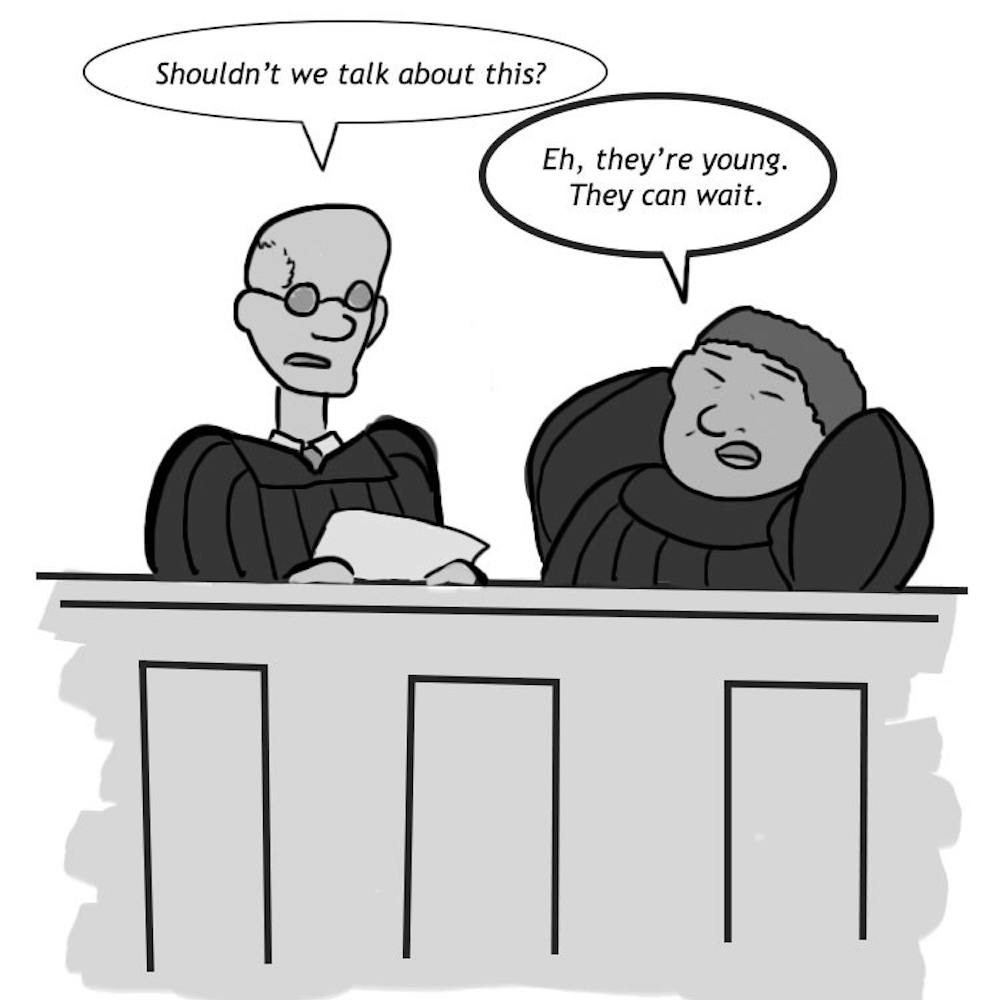Juvenile law reform is not a subject that regularly grabs major news headlines.
However, last week the Supreme Court and President Obama made two major strides in improving juvenile sentencing.
Although the United States prison system is far from perfect, we believe the Supreme Court and Obama are taking steps to improve the lives of prisoners who deserve a second chance.
Beginning in 2012, the Supreme Court decided in Miller v. Alabama that juveniles could no longer be sentenced to life without the possibility of parole, and could not be given life sentences for any crime other than murder.
Last Monday, the court determined the Miller decision should apply retroactively, allowing all juveniles sentenced to life without parole to appeal their sentences or obtain parole.
On the same day the court decided the Miller case, Obama banned the use of solitary confinement on juveniles.
The Editorial Board finds both the court rulings and Obama’s ban a positive step forward in improving the legal treatment of juveniles.
Many prisoners who were sentenced as juveniles to life in prison without parole have had decades in prison to rehabilitate and reflect on their behavior.
Juveniles’ mental capacity is not developed to the same extent as that of an adult.
That is why we don’t allow children to vote, drink or generally be responsible for their own actions.
As they mature into adult individuals, they are more likely to understand the consequences of their actions and achieve the rehabilitation and reflection for which the prison system supposedly aims.
According to the national research organization “Sentencing Project,” 80 percent of juveniles sentenced to life reported witnessing violence in their homes.
About 54 percent of them reported witnessing violence weekly.
The same survey also found that African American youth are sentenced to life at a 10 times higher rate per capita than white youth.
Given the systematic injustice and violence juvenile prisoners have to face, we believe these prisoners should be allowed to prove their crime did not demonstrate irreparable corruption.
While most offenders convicted as juveniles do deserve a chance at life outside prison, there are cases where life without parole is justified.
Justice Anthony Kennedy describes this distinction best with his statement, “Those prisoners who have shown an inability to reform will continue to serve life sentences.
The opportunity for release will be afforded to those who demonstrate the truth of Miller’s central intuition — that children who commit even heinous crimes are capable of change.”
Echoing the sentiment of the Supreme Court, Obama’s ban of solitary confinement for juveniles reveals the true purpose of the U.S. prison system is to rehabilitate offenders.
In an opinion piece published in the Washington Post last Monday, Obama claims, “Research suggests that solitary confinement has the potential to lead to devastating, lasting psychological consequences.
It has been linked to depression, alienation, withdrawal, a reduced ability to interact with others and the potential for violent behavior”.
Considering the laundry list of adverse effects from spending time in solitary confinement, the Editorial Board applauds Obama’s decision to ban the use of solitary confinement on juveniles.
The last thing the prisoner or society needs is for an offender to come out of prison more disadvantaged than when they entered.




